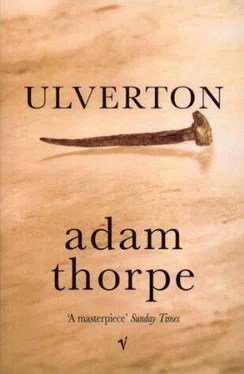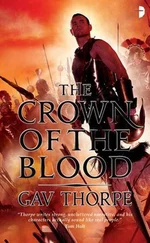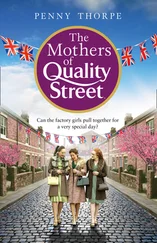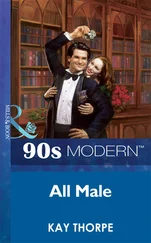I am,
yr ever loving & longing,
A.C.
July 4th. In confine still.
My only William, –
You say you shall unlock me. Why do you not? I cannot fear but that your being out at elbows — and staying thus in London — means you have lost your position — or you would fleet back on the instant to your Grammar, and your Lady. They say the boy is playing hoops in the garden of the Manor House. There is a murmur that he is to go to Eton this year — that is how Bint reported it to Wall, who let it drop with me last evening. I pine until I am husked of my soul. O this cavernous life, full of deep woes in which our unshining flesh lights nothing — a million candles would not shed this gloom from me — this bedroom does stretch a million miles — I am not yet finished with the ploughman — if I were in the land of the Indians I might feel less weary of needles and quills and clocks.
I shuffle my chair from a ruck of the carpet — I know its Persian lions in every claw — I have mapped out its maze until my feet do a jig & kick the wall — my shoe has undone its buckle — I am too fatigued to strap it — I let it fall — I study its silken corpse, till the clock strikes me out my dull transport — I straighten, sag — let my head fall upon my arms — emit a sigh that might tatter the ensign of any other lover — sit up once more — scratch my nose — fiddle the ribband at my neck — pick up my pen — let it hang on air until it fall insensible — a lifeless bird, that doth rest its plumage against the far more living wing of an ivory heron — then a knock at my door — a weary ‘come’ — the maid enters with her smell of the scullery following in a cloud — she does curtsey obligingly — I ignore — she removes my stool under its white cloth — she closes the door soft for she must think me close to slumber — which I am — the clock strikes a quarter, clears its throat, strikes again lest I be in doubt, grates a little — pit-a-pats on — or is that my heart — for I have thought of you! — the long winding road to London betwixt us — the motion of the carriage-wheels — your face at the fore-window — the dust upon your forehead — the passing cots and the stone that says, you are but a handful of miles from your love — but no — he don’t alight at the turning — the horses don’t stop, he don’t signal — he looks backward — a smile in the lips — our glade afar off — this room likewise — ’tis cast, a red ribband from the carriage — that flies up in the dust — tumbles to the verge — it does not scruple — it lies on the common highway — to be trampled upon — mangled by hooves & common boots — or ties a pedlar’s coat — or be obliterated forever — as the clock strikes again, & his carriage takes the slope — scarce touches the ground — post-haste — away — away — to a nothing — a nought — a silence! — she lifts her head — scratches her nose — doth sigh — doth wait for tea — doth pick up her pen — doth dip it — doth write — so –
ARE YOU FALSE?
I shall strike nothing out today, you perceive.
My aunts wonder I have writ them so much.
I have a spy-glass. It is my brother’s, from his school chest left me when he went to sea. A boy’s plaything, in brass. I spy through the window. The wood leaps up to me — it is the trick of the glass: I see the garlands woven about the wood — the lark come close — the buttons about the shepherd’s garters — I might gaze into the sun till it strike me blind. Last night ’twas full moon — with you also — I oped the window and the spy-glass caught it — my eye was filled — the light was like a maddened horse rearing over me — too white & wild to gaze upon! So all is brought nearer, but what excellent illusions we must live under, that our intelligence and reason does not expire from lack of fancy, and of hope!
Answer me quick.
A.C.
Here is the amount for the carriage. Berate my fancy.
July 20th, ’43.
Dear William, –
No post from you. Have you gone? Is this forwarded, or must it linger to be read by a scullion? My cousin Edmund has fallen in the Dutch war. A musket-ball shattered his heart. Fortunate young creature.
They have just now took my spy-glass from me. I could not explicate its presence but as a remembrance of my brother. My husband says it must find its use in the box at theatre. He thinks my brother is a pirate, for being salted on the high seas. Each morning this room stinks of my stool: the heat allows of no air. I forget to beautify myself at my table. I have few visitors. My husband is like the armadillo in my book of animals from Dürer: his hair curls into horns — he rubs too much fat in, then too thick powder. I have told him. He is Armadillo to the line. I have scribbled a cocked hat upon its head. It is my husband.
My fancy runs faster than my reason. I have night terrors. I asked the maid to entertain me — she told me of the legend here, of a shepherd who made love with a witch, and she bore a boy-lamb, that he reared as his own son, till it went among the flock by mishap — and the shepherd, he being old and deaf, don’t hear its cries and slew his own son, like Isaac might have done! And the old shepherd haunts the crest still, as apparition, calling out — where, where, where? I fancy I hear him at night, tho’ in the morning I think it the owls.
Write me. I cannot be easy till you do.
A.C.
Mabberley came across the lawn when I was spying. He winked at me. I saw him thro’ the spy-glass. I waved at him. One kind soul in a cavern of cruelties.
A heron flapped along the reach of the river, this early morning, spied thro’ my glass. When I returned to my desk, there was not one less — but it had seemed so.
August 16th, 1743.
William, –
I enclose the ribband.
I interpret your silence before your going as all frailty must — with a heavy and vain heart, that my thoughts were ever bent towards you, or that my hopes should dash themselves so repeatedly against such forbidding rock.
Your snuff-box that I gave you, enamelled with a scene of classical love, do not rub it brilliant against the sleeve of the coat that cost you no guineas, I fear, but mine — but cast it into the sea at Naples (I have been studying maps) or let it remain to curse you with my abject spleen.
They harvest beyond my window — I spy them: each row of reapers makes a road into my heart, they flash with grateful weapons, they slice me into ribbands. Our son’s eyes render me nothing but hurt.
I got your address off the Squire, who had it off your cook. I throw caution to the wind. Some melancholy cypress might be fitting burial for our kisses.
Do not communicate with me further. My Armadillo sniffs close — I am in confinement still, till the apples fall and the air is less feverish, they do tell me. I beat against the door in anger last week — I left trails of my nails, the wood of the door was gashed — I would have beat this warm head upon it, save that I gave myself greater hurt, & my poor dear Phoebe was dashed in the stead, that her face lies in tiny pieces still upon my mantelshelf, lest I forget my pain. They put it down to distraction from excess moisture — purged me — placed my spirits on the right course — rendered me unfit to leave before the autumn. I suspect — tho’ my maid reports no ill occurrence between Mabberley & the black — that Armadillo suspects in turn, & must have me hid like in the old fable. I can stand it little longer, without recourse to opiates.
There — I have spilt my coffee upon the paper. Let it spread. Discourse is poison. I shall find a herd of goat, dress in muslin, pipe my hymns to innocence on a thymy slope far from care — & your part of Italy.
I have a blister, where I held my finger above the candle-flame, to see what greater pain is cruel love.
Читать дальше










